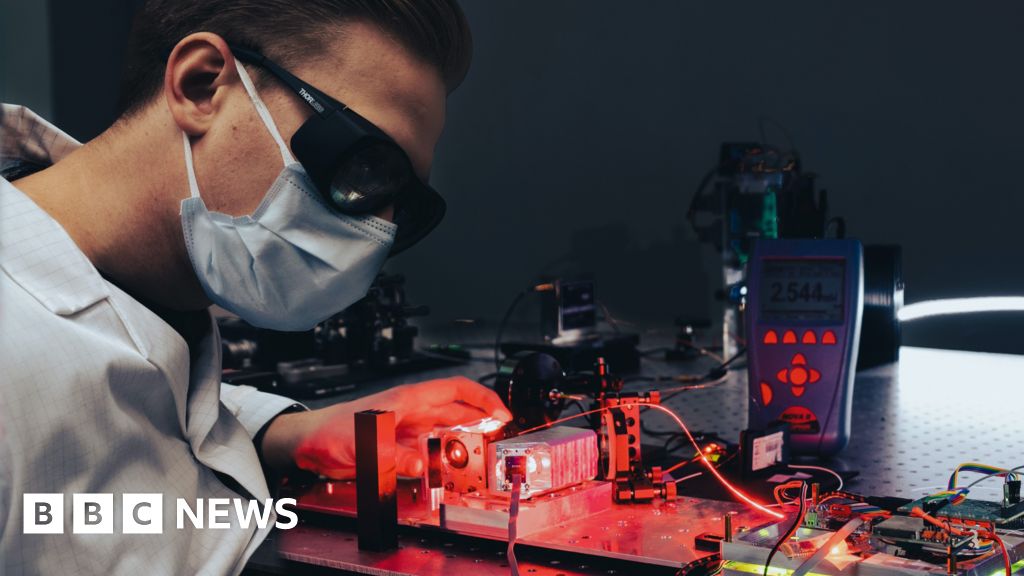By Marylou Costa
Worth about £2.5bn, Lithuania’s defence budget is small when you compare it to larger countries like the UK, which spends around £54bn a year.
But if you look at defence spending as a percentage of GDP, then Lithuania is spending more than many bigger countries.
Around 3% of its GDP is spent on defence, and that’s set to rise to 5.5%. By comparison, UK defence spending is worth 2.5% of GDP.
Recognised for its strength in niche technologies like Astrolight’s lasers, 30% of Lithuania’s space projects have received EU funding, compared with the EU national average of 17%.
“Space technology is rapidly becoming an increasingly integrated element of Lithuania’s broader defence and resilience strategy,” says Invest Lithuania’s Šarūnas Genys, who is the body’s head of manufacturing sector, and defence sector expert.
Space tech can often have civilian and military uses.
Mr Genys gives the example of Lithuanian life sciences firm Delta Biosciences, which is preparing a mission to the International Space Station to test radiation-resistant medical compounds.
“While developed for spaceflight, these innovations could also support special operations forces operating in high-radiation environments,” he says.
He adds that Vilnius-based Kongsberg NanoAvionics has secured a major contract to manufacture hundreds of satellites.
“While primarily commercial, such infrastructure has inherent dual-use potential supporting encrypted communications and real-time intelligence, surveillance, and reconnaissance across NATO’s eastern flank,” says Mr Genys.
